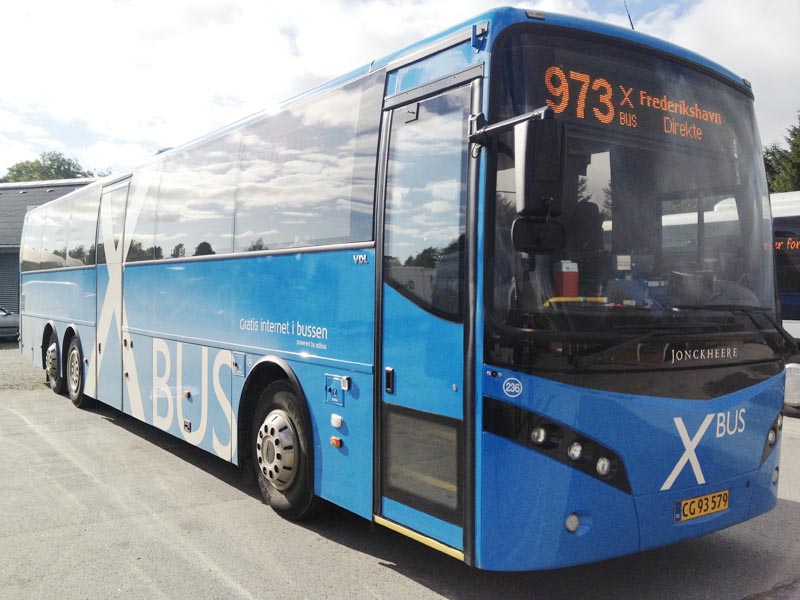Nordjyllands Trafikselskab (NT) has once again chosen Keolis to operate two bus networks, now combined into a single contract. The contract entails the renewal of Keolis to operate and maintain 67 buses from August 2021 to August 2031 and the award of the operation and maintenance of an additional 10 buses from August 2021 to August 2026. In total, the contract is worth around €190 million.

Under the contract, Keolis will serve 500,000 people in Northern Jutland in north-western Denmark. The network serves Aalborg, the region’s capital, connecting all towns in Northern Jutland with the city as well as a university, a major hospital, due to open in 2022, and an airport for domestic and international flights.
The network features 25 lines, one main depot and 14 smaller ones, for parking, washing and refuelling vehicles.
The 77 buses, including 65 new Scania-made buses, will travel nearly 10 million kilometres a year, with 67 running on renewable energies. 32 of the Scania-made buses will operate as express-line buses. Designed to enhance the passenger experience, these are equipped with amenities such as wi-fi and power outlets. Keolis will welcome 75 new employees with this contract.
Keolis in Denmark
Keolis has provided transit services in Denmark for 13 years, operating some 500 buses in 10 cities.
The Group also offers other transport services in the country and will soon be operating two light rail networks. After launching Denmark’s first light rail network in Aarhus in December 2017, Keolis was awarded a 2018 contract to run a second in Odense, scheduled to launch in 2021.
In June 2021, Keolis will begin operating and maintaining 47 buses – 32 of them electric – in Zealand and Falster (Greater Copenhagen), under a ten-year contract. This fleet will strengthen Keolis’ status as one of the largest zero-emission operators in Denmark, where it employs around 1,600 people.
Keolis operates around 23,000 buses and coaches worldwide – from urban to suburban service, from rapid transit to shuttles, and from mass transit to school transport and tourism. Around 4,000 of these vehicles run on alternative energies such as electricity, natural gas, bio-natural gas and hydrogen. In December 2020 alone, Keolis launched 384 fully electric buses in Norway and the Netherlands.